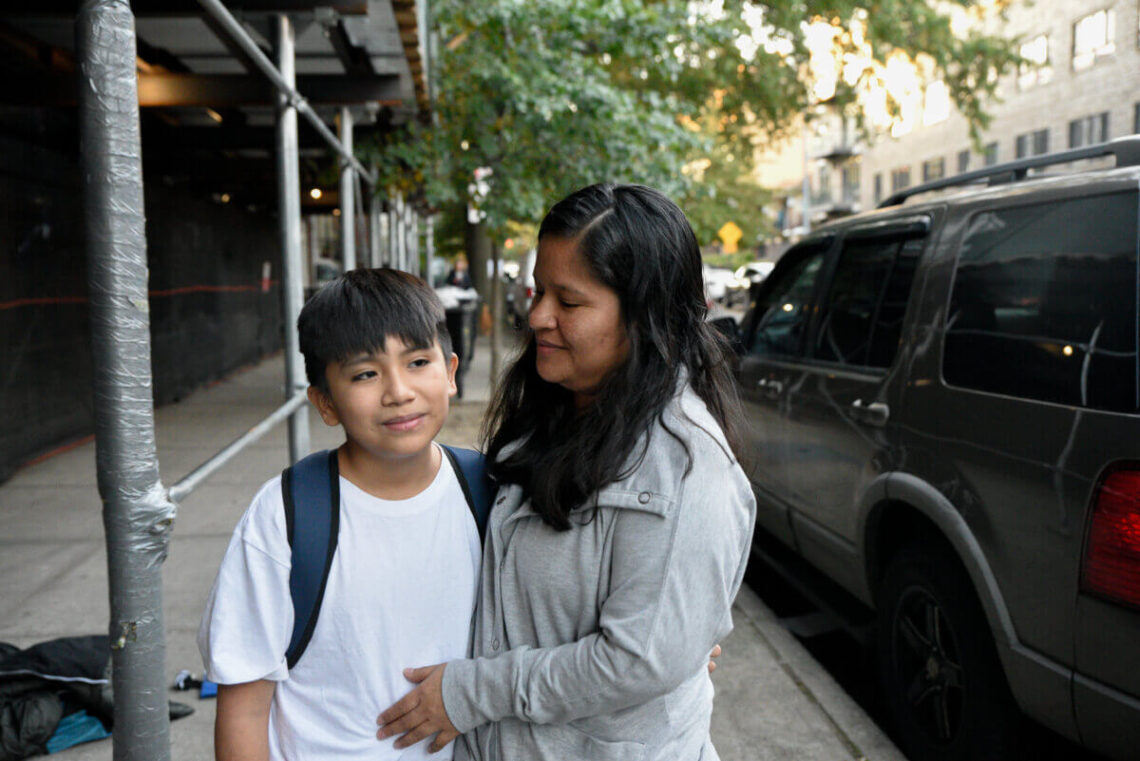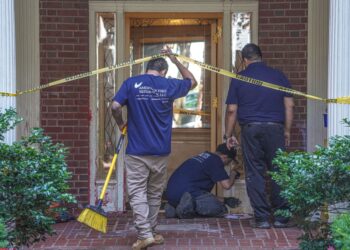Promptly at 5 p.m. every weekday, Marlena Mendoza, a 37-year-old migrant from El Salvador, leaves her room inside a makeshift shelter in Brooklyn and heads to pick up her son from school.
The morning drop offs and evening pick-ups on weekdays are the only certainties she has, not knowing how long she will be able to stay at the Crown Heights shelter as well as in the United States.
However, she does know that at 5:30 p.m. each weekday her 11-year-old son, Justin, who is the only person she knows in the city, will greet her with a smile and tell her what he had for lunch that day.
Meanwhile, her husband, Aguilar, and 18-year-old son, Javier, have been stuck in an immigration detention center in Rio Grande City, Texas since mid-August.
Widespread violence in El Salvador prompted the Mendoza family to take the long trek to the United States – a journey that took over two years. Marlena had also been raped, the final act of violence that pushed them to migrate north by bus and foot.
Their journey also involved the crossing of the Rio Grande River where Mexico borders Texas. Shortly after a perilous 40-minute swim, border patrol agents apprehended them, and the family was torn apart. With half the family detained, Marlena made the difficult decision to get on a bus with Justin to go to a city unknown.
Marlena’s story is not that different from the thousands of other migrants from Central or South America, and she counts her blessing that she has made it alive. She is also not the only one to see her family split apart at the hands of border patrol agents.
Today she’s one of many living in New York, unsure of her future, in terms of finding work, housing and reuniting her family.
Taking the risk
Marlena said many immigrants like her take the risk of coming to the U.S. despite not knowing what will unfold.
“Sometimes [they immigrate] due to hunger, sometimes it’s violence, sometimes it’s extortion,” Marlena said. “It’s not because you want…
Read the full article here








